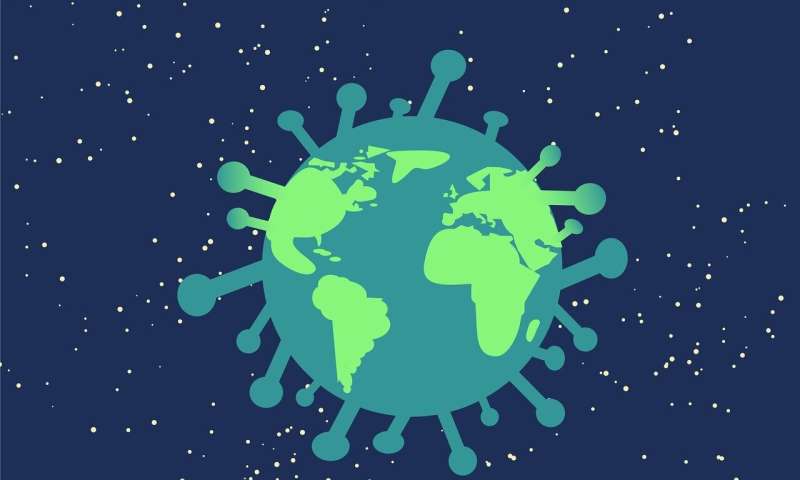Credit: Pixabay/CC0 Public Domain
Australia's third-largest city headed into lockdown and borders were set to tighten nationwide Friday, after a cleaner at a quarantine hotel contracted the UK coronavirus strain that appears to be more infectious.
More than two million residents in the Greater Brisbane area will have to stay at home for at least three days from Friday evening, authorities said.
"If we are going to stop the spread of this infectious strain, this UK strain, we must act immediately," Queensland Premier Annastacia Palaszczuk told media.
Large queues formed at shops around the city, prompting officials to urge people to stop panic-buying.
The incoming restrictions will still allow residents to leave home to buy essentials.
On Brisbane's central shopping strip, Queen Street Mall, people voiced broad support for the measures—keen to avoid the soaring case numbers seen as the variant takes hold in Britain.
Andy McPhee, 51, a Brisbane resident who works for an international firm, said the lockdown paled in comparison to what his colleagues overseas were experiencing.
"I don't think a three-day lockdown is going to hurt us at all. I think it's imperative to stamp out the virus," McPhee told AFP.
"One case becomes two and two cases become 10 so before you know it, it can get a bit out of control."
The variant, which first triggered warnings in the UK last month, appears to be more infectious than other COVID-19 strains more commonly detected in Australia.
Several UK and South African variant cases have been detected in travellers currently under mandatory quarantine in recent weeks.
But the Queensland case was the first to be contracted locally and is believed to have spread to a cleaner from a returning traveller isolating in a Brisbane quarantine hotel.
'Many unknowns'
The city's lockdown signalled a return of restrictions unseen since March. Residents have been ordered to stay home and told to wear masks when leaving for essential reasons only.
Following the announcement, authorities around the country restricted travel to and from Brisbane and tightened already tough rules on international arrivals.
Prime Minister Scott Morrison said all international travellers would now be required to undergo testing before flying to Australia.
The already low number of arrivals would also be temporarily reduced by 50 percent and a 14-day mandatory quarantine for all travellers will be retained.
"There are many unknowns and uncertainties in relation to the new strain, and so that's why this precautionary approach, we believe, is very sensible," Morrison said.
Researchers are scrambling to determine just how much more contagious the British variant—known as B.1.1.7—is, with initial studies suggesting it may spread 40-70 percent more than existing strains, although data outside Britain is limited.
Another key question is whether existing vaccines work against the new strain, with Pfizer on Friday reporting that preliminary findings were positive and the vaccines did work.
Before the announcement, Brisbane was among several Australian cities enjoying a return to relative normality during the southern hemisphere's summer.
The state of Queensland recorded no new cases of community transmission on Friday.
But recent outbreaks in Sydney and Melbourne had forced travel across state borders to be tightly restricted again amid mounting pressure on officials to hasten the vaccine's rollout.
On Thursday, Morrison announced plans to bring forward the planned vaccine rollouts by weeks. They are now slated to begin in February.
Australia has recorded more than 28,500 COVID-19 cases and 909 deaths linked to the virus, in a population of about 25 million.
© 2021 AFP
























